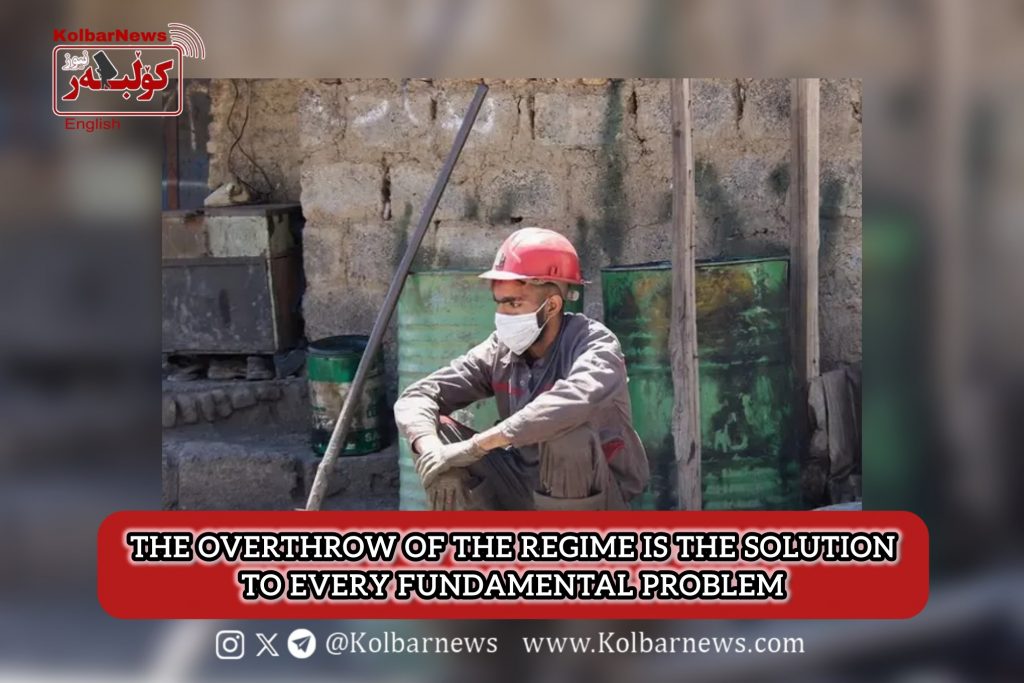
The state-run ILNA news agency, in a report, discussed the impact of the recurring power outages on certain businesses, employers, and workers. This report was prepared to draw the attention of officials like Masoud Pezeshkian and his colleagues, mainly showing sympathy for capital owners and small employers. However, the effects of this situation on workers’ incomes were also examined. ILNA, at the beginning of the report, mentioned that the shortage of electricity and the government’s inability to provide energy has led to repeated blackouts.
According to the report, the power cuts spread like an unstoppable wave everywhere, from people’s homes and offices to factories and economic enterprises across the country. During the hot summer days of this year, electricity was intermittently cut off in industrial towns, and production lines went into a summer sleep. In many major industrial units, such as steel and smelting factories, production this summer was reduced to one-third, and at least two work shifts per day were sent on compulsory leave.
According to this report, the Association of Steel Producers, in a letter to the Ministry of Energy, criticized the failure to implement the mutual agreements, announcing that from July 10th, due to severe electricity restrictions, steel production in the country has almost stopped. The writer of the letter naturally does not see the workers’ problems, but indirectly mentions that employers have been unable to pay wages on time. The head of the Energy Commission of the Chamber of Commerce also announced that “the daily loss from power cuts in industries exceeds 5 trillion tomans.”
The ILNA report, referring to the workers who, as it says, matter least to decision-makers and the upper class, states that they, too, suffer from the conditions created during this hot summer. Mohammad, a worker at a parts manufacturing workshop on the outskirts of Tehran, says: “When the electricity goes out in the middle of the day and at the start of our work shift, we are sent on compulsory leave, and it is deducted from our entitled leave!” Mohammad considers the reduction in wages and benefits as another misfortune caused by the power shortage and the government’s inability to provide electricity. He continues: “Our only hope as industrial workers is the production bonus and performance pay, which slightly increases our salary at the end of the month. For the past two months, the bonuses and performance pay have been zero; more than half of our work shifts have been canceled due to power cuts, and when there’s no production, where’s the bonus?!”
This worker says: “For the past two or three months, we haven’t even earned enough to pay the rent. What sin have we committed that we must suffer the consequences of poor management and patchwork solutions? They can’t provide the country’s electricity, and we have to suffer from the lack of money?!”
The report also mentions the loss faced by construction workers due to the shortage and unplanned power cuts. It states: “The free fall of workers’ income this summer is not limited to industrial workers; construction workers, another large group, suffer losses of millions of tomans every month due to power cuts, making their already empty pockets even emptier.”
Hassan Ezzati, the head of the Baneh Construction Workers’ Union, criticized the severe financial hardship faced by workers in this hot and thirsty summer, reporting a 30% reduction in construction workers’ income due to power cuts. He told ILNA: “These days, power cuts across the country have disrupted the continued operation of manufacturing plants and service centers; the construction industry, unfortunately, one of the least regarded sectors for its human resources, has been affected by the current situation. According to estimates by the Baneh Construction Workers’ Union, workers and craftsmen in this sector have experienced a 25-30% drop in income due to power cuts, leading to a severe recession in construction affected by the power outages.”
Ezzati added: “The government’s inability to provide electricity has caused problems for the working class. When the power goes out, everyone suffers, but those who have some savings or financial resources are less affected by the power outages; however, a worker who relies on daily work and lives hand-to-mouth suffers the most from the government’s inability to manage the situation. Truly, why didn’t they think about the hot summer and build solar power plants during the booming years of the ninth and tenth governments when oil money was flowing in? Why did they tie the frayed rope of the economy and livelihood to the worn-out power lines so that the ‘people’ would once again bear the brunt of negligence, irresponsibility, and the squandering of national wealth?”
Of course, the reporter limits the statements of labor activists regarding the electricity shortage to mere mismanagement and negligence by officials.
There is no doubt that the ignorance, weakness, and corruption of managers have contributed to the electricity shortage, but the main problem lies in the structure of the Islamic capitalist government. This is a regime of repression, not production, and it is necessary for the primary producers to think about replacing this system with a popular government that can utilize skilled and young labor and natural resources for the welfare and prosperity of all citizens in Iran.

